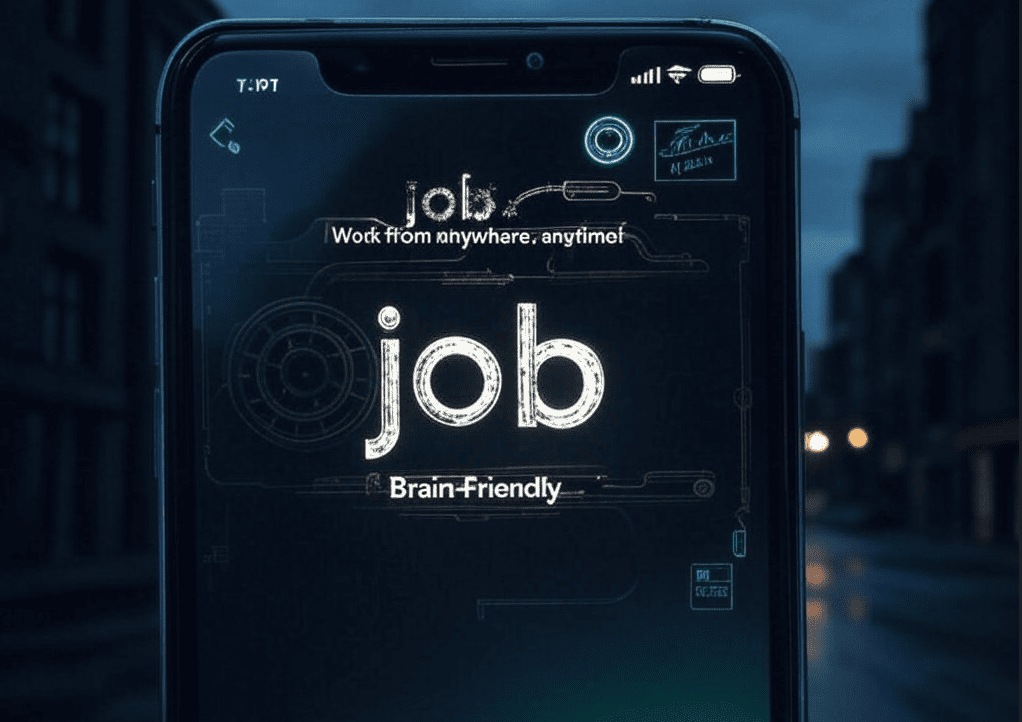Hello!
The gig economy has transformed the way people work, offering unprecedented flexibility and independence to millions of individuals worldwide.
 From freelance designers to ride-share drivers, gig workers are redefining traditional employment models. However, this shift also brings unique financial challenges, such as irregular income, lack of benefits, and limited access to traditional banking services.
From freelance designers to ride-share drivers, gig workers are redefining traditional employment models. However, this shift also brings unique financial challenges, such as irregular income, lack of benefits, and limited access to traditional banking services.
Enter Quasa Connect — a groundbreaking platform designed to serve as a basic financial instrument tailored to the needs of the gig economy.
The Rise of the Gig Economy
In recent years, the gig economy has seen explosive growth, fueled by digital platforms that connect workers with short-term opportunities. According to estimates, millions of people globally now rely on gig work as their primary or supplementary source of income.
.jpg) This shift offers freedom and autonomy, allowing individuals to choose when, where, and how they work.
This shift offers freedom and autonomy, allowing individuals to choose when, where, and how they work.
Yet, it also exposes workers to financial instability, with fluctuating earnings and little access to conventional financial tools like loans, savings plans, or insurance.
Traditional financial systems, built for salaried employees with predictable paychecks, often fail to meet the needs of gig workers.
This gap has created an opportunity for innovative solutions to emerge, and Quasa Connect is leading the charge by offering a decentralized, crypto-based financial ecosystem designed specifically for this growing workforce.
What is Quasa Connect?
 At its core, it leverages cryptocurrency—specifically Quasacoin (QUA) — to enable seamless, low-cost payments between service providers and clients across borders.
At its core, it leverages cryptocurrency—specifically Quasacoin (QUA) — to enable seamless, low-cost payments between service providers and clients across borders.
Unlike traditional freelance platforms that impose high fees and currency conversion costs, Quasa Connect eliminates these barriers, making it an efficient and affordable option for gig workers worldwide.
The platform serves as both a marketplace and a financial tool. It connects freelancers with clients while providing built-in payment solutions that bypass the complexities of fiat-based banking systems. By integrating smart contracts, Quasa Connect ensures transparency and trust, allowing gig workers to receive payments quickly and securely without relying on intermediaries.
Quasacoin: A Game-Changer for Finance
Proponents argue that Quasacoin could replace the cumbersome traditional banking system—with its millions of clerks, billions in overhead costs, and efficiency comparable to the earliest steam locomotives.
By leveraging blockchain technology, Quasacoin eliminates the need for bloated bureaucracies and outdated processes, offering a lean, decentralized alternative that prioritizes speed, security, and cost-effectiveness. For gig workers, this means a financial tool that aligns with their dynamic, independent lifestyles, free from the inefficiencies of conventional banking.
Addressing a Critical Gap
 One of the most glaring flaws in traditional banking is its inability to handle small transactions affordably. A simple bank transfer today costs around $20, while sending amounts as small as 10 cents or a dollar is practically impossible.
One of the most glaring flaws in traditional banking is its inability to handle small transactions affordably. A simple bank transfer today costs around $20, while sending amounts as small as 10 cents or a dollar is practically impossible.
For a freelancer in Bangladesh earning a modest fee, getting paid under such conditions becomes a logistical nightmare. Even basic financial instruments for this audience simply don’t exist in the conventional system.
This is where Quasa Connect stands out. Unlike other platforms, it offers a real and tangible chance to reshape the global financial system by enabling microtransactions at negligible costs, empowering gig workers in underserved regions to participate fully in the digital economy.
Why Quasa Connect Matters
1. Affordable Transactions
.jpg) Traditional freelance platforms often charge hefty fees—sometimes as high as 40%—for their services, including payment processing and currency conversion. Quasa Connect drastically reduces these costs by utilizing blockchain technology and Quasacoin, enabling gig workers to retain more of their earnings.
Traditional freelance platforms often charge hefty fees—sometimes as high as 40%—for their services, including payment processing and currency conversion. Quasa Connect drastically reduces these costs by utilizing blockchain technology and Quasacoin, enabling gig workers to retain more of their earnings.
2. Global Accessibility
For gig workers in regions with limited banking infrastructure, Quasa Connect offers a lifeline. It allows anyone with an internet connection to participate in the global gig economy, hire talent, or offer services without being tied to a specific country’s currency or financial regulations.
3. Financial Flexibility
The unpredictable income streams of gig work make budgeting and planning difficult. Quasa Connect, powered by Quasacoin, provides a stable financial instrument, giving workers a reliable way to store and manage their earnings outside volatile local currencies.
4. Empowering Independence
By removing centralized control and intermediaries, Quasa Connect empowers gig workers to take charge of their financial lives. The platform’s decentralized nature aligns perfectly with the ethos of the gig economy—freedom, flexibility, and self-reliance.
A Tool for the Future
 As the gig economy continues to expand, the demand for tailored financial solutions will only grow. Quasa Connect is positioned to meet this need by offering a scalable, user-friendly platform that evolves with the workforce.
As the gig economy continues to expand, the demand for tailored financial solutions will only grow. Quasa Connect is positioned to meet this need by offering a scalable, user-friendly platform that evolves with the workforce.
Its use of blockchain technology not only ensures security and efficiency but also paves the way for future innovations, such as integrating financial planning tools, micro-loans, or insurance options for gig workers.
Moreover, Quasa Connect’s emphasis on Quasacoin reflects a broader trend toward decentralized finance (DeFi). As more individuals and businesses adopt digital currencies, platforms like Quasa Connect could become the standard for gig economy transactions, bridging the gap between traditional finance and the modern workforce.
Challenges and Opportunities
While Quasa Connect presents a promising solution, it is not without challenges. The volatility of cryptocurrencies, regulatory uncertainties, and the need for widespread adoption are hurdles that must be addressed.
However, these challenges also represent opportunities for growth. By educating users about cryptocurrency and building partnerships with gig platforms, Quasa Connect can solidify its place as a vital tool for gig workers.
Conclusion
 Quasa Connect is more than just a payment platform—it’s a financial lifeline for the gig economy.
Quasa Connect is more than just a payment platform—it’s a financial lifeline for the gig economy.
By addressing the unique needs of gig workers with a decentralized, cost-effective, and accessible solution, it stands as a basic yet powerful instrument for navigating the complexities of freelance work.
With Quasacoin poised to challenge the inefficiencies of traditional banking and its ability to enable microtransactions for underserved workers, Quasa Connect offers a clear and realistic chance to transform the global financial system — something few other platforms can claim.
The new section about the high cost of bank transfers and the inability to send small amounts has been integrated into the article, emphasizing Quasa Connect’s unique value proposition and its potential to disrupt the financial world. Let me know if you’d like any further refinements!


.jpg)




